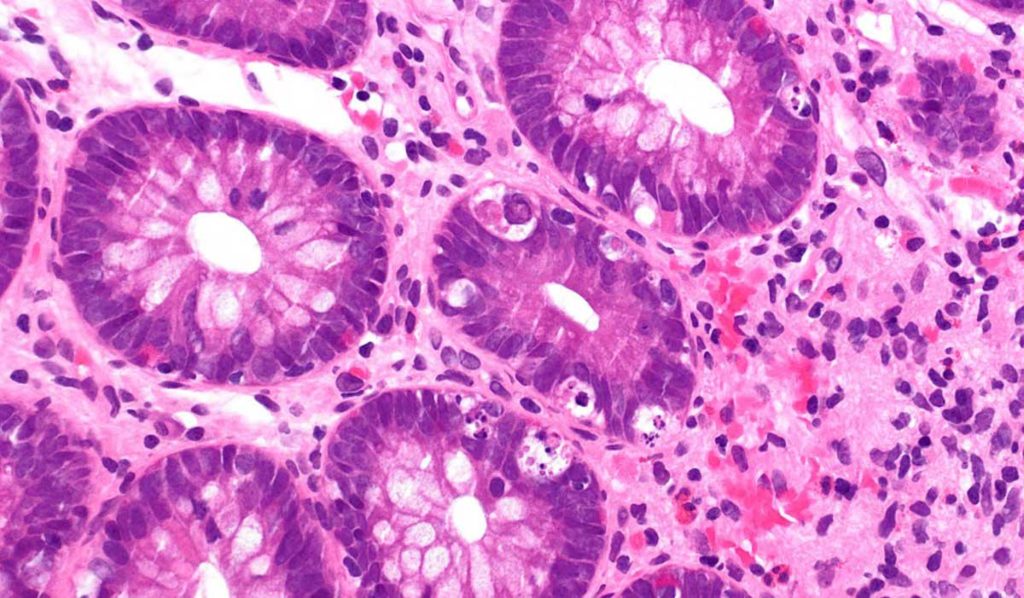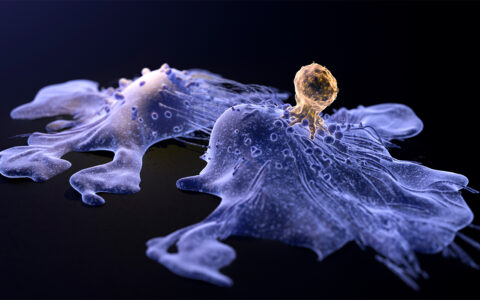This year, the FDA approved ruxolitinib, the first drug for patients with steroid-refractory graft-versus-host disease (GVHD) who haven’t responded to steroids. Another potential therapy for chronic GVHD – KD025 – is in clinical trials.
Madan Jagasia, M.D., chief medical officer and co-leader of the Translational Research and Interventional Oncology Program at Vanderbilt-Ingram Cancer Center, is an international authority on emerging GVHD treatments. Jagasia was the principal investigator for the ruxolitinib clinical trial and chairs the study committee for a KD025 clinical trial.
Jagasia presented long-term, follow-up results of the most recent KD025 clinical trial during the American Society of Hematology Annual Meeting and Exposition in Orlando.
KD025 Induces Rapid Response
Jagasia and colleagues from 10 study locations reported durable and clinically meaningful responses across three cohorts of patients with chronic GVHD. Half of the patients had chronic GVHD in four or more organs.
Patients received KD025 in different dosages (200 mg once a day, 200 mg twice a day or 400 mg once a day) after one to three prior lines of systemic therapy. The overall response rate for all three cohorts was 65 percent. The responses were rapid and often achieved within eight weeks in most of the patients. Sixty-three percent of patients who responded to KD025 therapy also reported symptom improvement.
“KD025 is very effective in inducing responses and is very well tolerated,” Jagasia said. “It is exciting to see the development of new interventions that can help patients.”
A total of 54 patients were enrolled in the study between September 2016 and March 2018. The study is ongoing, and a significant portion of the study population remains on KD025.
An Unmet Need
Chronic GVHD typically manifests 100 days after hematopoietic stem cell transplantation, Jagasia said. It occurs when transplanted immune cells attack the patient’s cells, which can result in inflammation and fibrosis in multiple tissues and organs, including the skin, mouth, eye, joints, liver, lung, esophagus and gastrointestinal tract. Organs with fibrotic manifestations in the new study (lungs, joints, and eyes) took longest to respond to KD025.
“Treatment of chronic GVHD that does not respond to initial treatment is a significant unmet need.”
“Chronic GVHD is the most common cause of late mortality after a donor stem cell transplant,” Jagasia said. “Treatment of chronic GVHD that does not respond to initial treatment is a significant unmet need.”
KD025 is an oral medication that inhibits Rho-associated coiled-coil kinase 2 (ROCK2). It is designed to decrease human T cell IL-21 and IL-17 secretion, and decrease Foxp3+ T cell populations.





